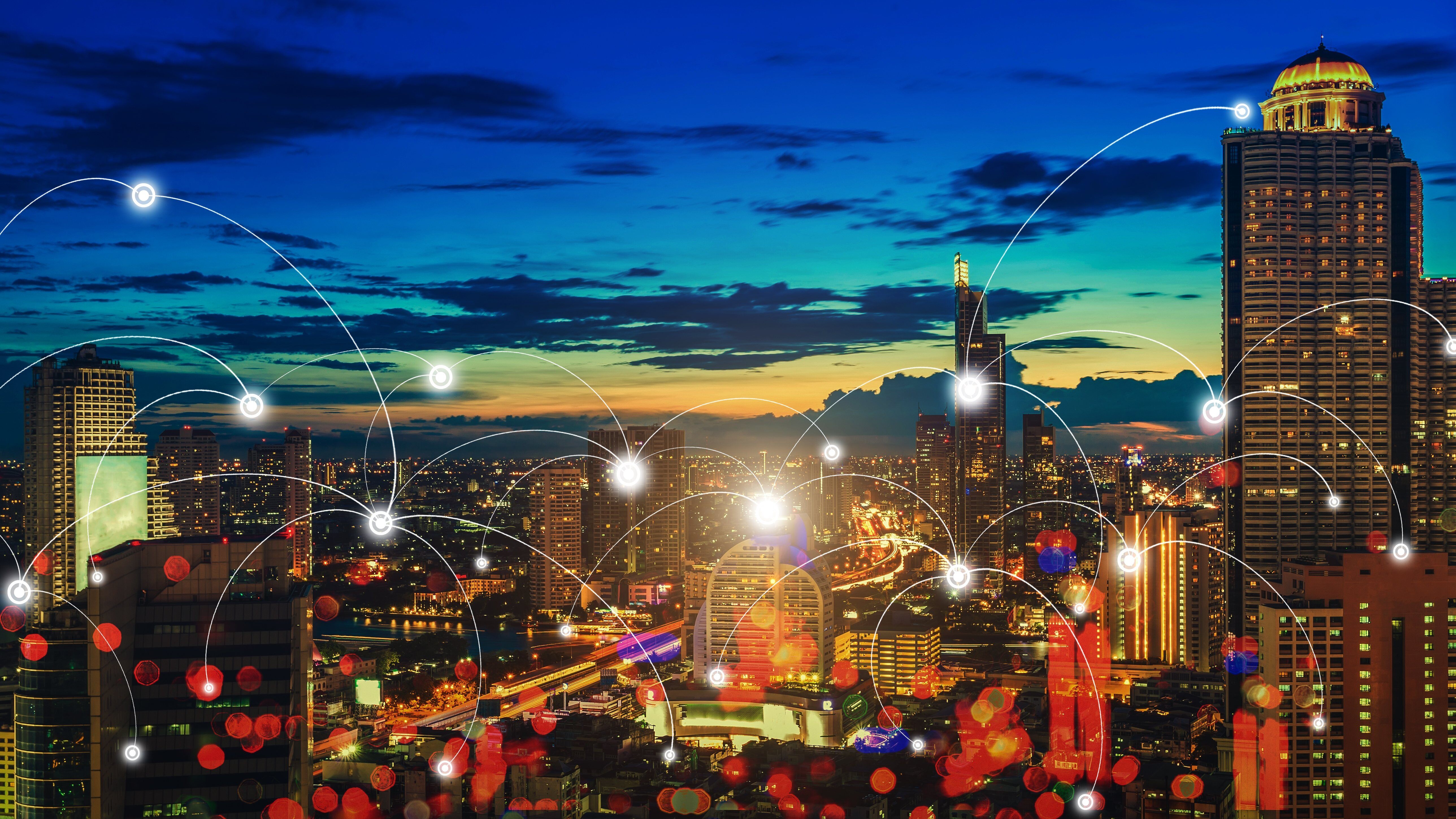Smart City: starting the journey towards the city of tomorrow

In recent decades, urbanisation has been one of the most significant global phenomena. Population growth in cities has led to an increasing demand for natural resources. This has inevitably had an impact on the environment, causing various problems, such as air pollution, water scarcity and declining biodiversity.
However, in recent years, we have witnessed a change of course. Cities around the world have started to adopt innovative solutions to ensure greater environmental sustainability and improve the quality of life of their citizens, optimise the use of resources, reduce environmental impact and increase the efficiency of urban services. Smart Cities are the answer to this need.
What is a Smart City?
The European Commission defines a Smart City as “a place where traditional networks and services are made more efficient through the use of digital solutions for the benefit of its inhabitants and businesses”. In them, each building dialogues with the others and everything is aimed at sustainability, well-being and energy efficiency, for the benefit of the individual citizen and the community.
But a Smart City goes beyond the use of digital technologies. Building a smart city means:
-
integrated infrastructure and processes in the fields of energy, information and communication technology and transport
-
reducing pollution
-
support for economic growth
-
more job opportunities
-
more interactive city administration
-
citizen focus
Data Analysis and System Interoperability in Smart Cities
What characterises Smart Cities is the high connectivity, guaranteed by a vast network of sensors, cameras and IoT devices capable of collecting large amounts of data, used by local administrations to manage urban resources more efficiently.
In this context, the amount of data produced by the monitoring systems installed on the territory represents the most important asset of a smart city. However, in order to contribute to the construction of a Smart City, data must necessarily use a common language capable of communicating according to standardised logics that are open to interoperability.
System interoperability, in particular, is a key element for the success of Smart Cities, as it is thanks to it that information sharing and collaboration between the different actors involved in smart and sustainable urban management can be promoted.
5 pillars a Smart City
Goal 11 of the United Nations 2030 Agenda aims to make cities and human settlements inclusive, safe, resilient and sustainable. In this context, this goal gives city governments important tasks in the strategic planning of the transformation path towards Smart Cities.
The adoption of urban planning according to the Smart City approach has the principle of sustainability as a driver. This can be declined into 5 key actions:
-
Promoting the energy efficiency of buildings through the use of renewable energy sources, low-energy devices and building renovation or energy requalification of existing buildings.
-
Encouraging the use of sustainable means of transport, i.e. promoting the use of bicycles, public transport, car sharing and environmentally friendly vehicles.
-
Supporting urban regeneration programmes, including the creation of green areas, the installation of new street furniture, the recovery of abandoned buildings or the organisation of social and cultural aggregation.
-
Favouring the circular economy, i.e. promoting waste reduction and the development of recycling and reuse practices for materials used in production activities, the implementation of energy and water saving technologies, the adoption of waste water management systems and smart lighting or renewable energy production facilities.
-
Improving air quality through the installation of IoT sensors and smart traffic management technologies to reduce air pollution.
Smart Cities represent a great opportunity to improve citizens' quality of life, make cities more efficient and create new opportunities for jobs and economic growth. However, to make Smart Cities reach their full potential, it is crucial that there is close collaboration between government, businesses, communities and citizens themselves. We need to work together to define clear goals, invest in technology infrastructure and ensure that the solutions implemented are secure, transparent and respectful of citizens' privacy. In this way, we can create more sustainable, innovative and inclusive cities for the future.








